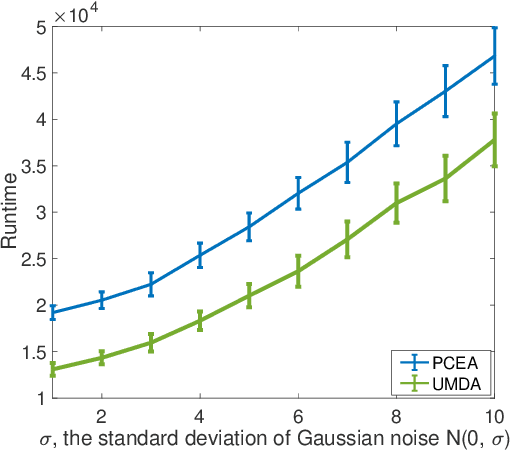Aishwaryaprajna
Online Learning of Temporal Dependencies for Sustainable Foraging Problem
Jul 01, 2024Abstract:The sustainable foraging problem is a dynamic environment testbed for exploring the forms of agent cognition in dealing with social dilemmas in a multi-agent setting. The agents need to resist the temptation of individual rewards through foraging and choose the collective long-term goal of sustainability. We investigate methods of online learning in Neuro-Evolution and Deep Recurrent Q-Networks to enable agents to attempt the problem one-shot as is often required by wicked social problems. We further explore if learning temporal dependencies with Long Short-Term Memory may be able to aid the agents in developing sustainable foraging strategies in the long term. It was found that the integration of Long Short-Term Memory assisted agents in developing sustainable strategies for a single agent, however failed to assist agents in managing the social dilemma that arises in the multi-agent scenario.
Evolutionary Algorithms for Solving Unconstrained, Constrained and Multi-objective Noisy Combinatorial Optimisation Problems
Oct 05, 2021



Abstract:We present an empirical study of a range of evolutionary algorithms applied to various noisy combinatorial optimisation problems. There are three sets of experiments. The first looks at several toy problems, such as OneMax and other linear problems. We find that UMDA and the Paired-Crossover Evolutionary Algorithm (PCEA) are the only ones able to cope robustly with noise, within a reasonable fixed time budget. In the second stage, UMDA and PCEA are then tested on more complex noisy problems: SubsetSum, Knapsack and SetCover. Both perform well under increasing levels of noise, with UMDA being the better of the two. In the third stage, we consider two noisy multi-objective problems (CountingOnesCountingZeros and a multi-objective formulation of SetCover). We compare several adaptations of UMDA for multi-objective problems with the Simple Evolutionary Multi-objective Optimiser (SEMO) and NSGA-II. We conclude that UMDA, and its variants, can be highly effective on a variety of noisy combinatorial optimisation, outperforming many other evolutionary algorithms.
 Add to Chrome
Add to Chrome Add to Firefox
Add to Firefox Add to Edge
Add to Edge